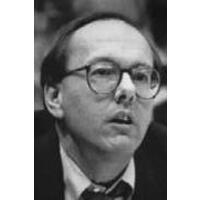never
those games were played with ineligible players; that cannot be undone
I disagree with the definition you are using for ineligible.
Forfeiting games is a huge penalty. It should be used when a team wins games playing against opponents on an uneven playing field. This includes those like playing with players given money to attend a school. Playing with players whose parents were given jobs in exchange for coming to the school. Allowing players to play in games where the school knew the players were taking performance enhancing drugs. Allowing players to enroll and play who cheated on their college boards, or used a bogus HS transcript to become eligible. Allowing athletes to compete in games while they are academically eligible.
In short, things that give schools a competitive advantage over other schools.
I do not consider players who tested positive for non-performance enhancing drugs (this has never affected NCAA eligibility) to be ineligible. The NCAA says those players were ineligible because SU had a drug policy to notify the guardians of players who failed the drug policy. SU sometimes did not do that. There was absolutely no competitive advantage gained here. The behavior the players engaged in was and remains common. There was no competitive advantage gained. Saying the players were ineligible and the games should be forfeited is not reasonable and is nonsensical.
This is a situation where the SUAD and coaches sometimes did not follow internal procedures. It has nothing to do with the NCAA. The NCAA should focus on enforcing their rules; not interfere with and severely penalize schools for not always following internally set rules that regard minor, almost irrelevant things athletes do everywhere with no penalty. I have no problem with the NCAA noting internal procedures were not followed. I have no problem with fining the coach, the AD; whoever was responsible. But you have to fit the punishment to the crime. You have to have some sense of consistency.
As i remember it, that was the biggest violation.
What else did the NCAA object to?
The NCAA complained that a couple of players got paid $50 to ref games or teach classes at a YMCA. I think the said the might have been an instance or two where the YMCA could not prove the player showed up and did what they were paid to do. Maybe that happened. Maybe not. Again, if players were paid for nothing, that is not good and the NCAA should write it up as a finding, and whoever is responsible for oversight on players working during the off-season hound be written up and probably fined. The NCAA apparently also objected to players getting $50 to drive to and from Oneida and to spend 90-120 minutes working. I don’t see that as a major violation. I am not sure there is any violation here. Taking out money for gas, how much did the players make per hour? $15-$20? We are talking about a couple of players making maybe a hundred or $150 dollars here. Again, I don’t see this as a competitive advantage and I am confident the NCAA would find similar or worse things happening at any other NCAA school. No one came to Syracuse to play basketball so they could make $50 dollars a couple of times an a YMCA driving 30 miles each way.
There might have been other things but the only other one I remember off the top of my head was the Fab Melo saga. As I remember it, they thought a tutor wrote a paper for him. This was strongly disputed and i don’t think the NCAA had proof. I don’t know what happened here. SU cooperated with the NCAA fully throughout the investigation and self reported found almost every violation. Not exactly a smoking gun here.
I think the biggest issue the NCAA had was with Dr Gross assembling a ’ dream team’ designed to find ways to deceive the NCAA and keep Fab eligible. That was really bad behavior that i think should have made Dr Gross ineligible to work at an NCAA institution for 5 years. Had he been successful and had Fab played the spring semester when he wa ineligible, yes, i have no issues having those games be ruled forfeits. I am not sure but I think SU did let Fab play a couple games after the fall semester ended, and Fab failed his courses so spectacularly that he immediately became ineligible. Those games should be considered forfeits. SU did play those games with an ineligible player and did gain an unfair competitive advantage.
That is how i see things...


